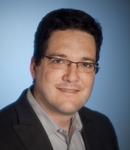Philanthropy411 is currently covering the Communications Network and CommA Fall 2010 Conference in Los Angeles with the help of a blog team, which is part of the conference’s 2nd annual Gorilla Engagement Squad. This is a guest post by Daniel Silverman, Director of Communications, The James Irvine Foundation. Follow Daniel on Twitter: @IrvineFdn
by: Daniel Silverman
 The Communications Network conference got rolling this morning with a plenary speech by James Surowiecki, author of The Wisdom of Crowds and New Yorker columnist. I won’t attempt to summarize the speech, which summarized the book. Instead, in a convenient bit of serendipity, I’ll point you to Wikipedia, perhaps the best known example of the wisdom of crowds being greater than the wisdom of any individual expert. Here’s the entry on his book, which tracks pretty closely to his speech this morning: http://bit.ly/cgT35T.
The Communications Network conference got rolling this morning with a plenary speech by James Surowiecki, author of The Wisdom of Crowds and New Yorker columnist. I won’t attempt to summarize the speech, which summarized the book. Instead, in a convenient bit of serendipity, I’ll point you to Wikipedia, perhaps the best known example of the wisdom of crowds being greater than the wisdom of any individual expert. Here’s the entry on his book, which tracks pretty closely to his speech this morning: http://bit.ly/cgT35T.
The speech definitely passed the first two tests of any plenary session: It was entertaining and it was relevant. The real challenge with these sessions is how to make the learning not just relevant, but actionable. What, if anything, should we do differently on Monday based on what we learned in that session? The conference organizers were smart enough to schedule follow-up discussions in smaller groups on each of the plenaries, giving us a chance to discuss how to make our insights actionable. About 50 of us spent an hour this morning discussing Surowiecki’s speech, and many of the comments focused on what can/should be done to take advantage of the wisdom of crowds in philanthropy. Some good examples were share of crowdsourcing grantmaking decisions, including the awards and prizes that the Case Foundation, and others, are using to find great organizations to fund. One community foundation staff shared her successful experience crowdsourcing her strategic plan, which included input from 300 community members.
We also surfaced some of the challenges we might find in philanthropy as we try to apply Surowiecki’s findings to our work. Several people focused on the cultural challenges, specifically the existing culture in philanthropy that doesn’t necessarily support efforts to crowdsource. I agree that this is a challenge. Many foundation staff are highly respected experts in their fields. Do we just devalue that expertise and decide that the wisdom of the crowd has proven to trump expertise, and just push grantmaking decisions to the crowd?
That doesn’t seem fruitful to me. It seems to me that the wisdom of crowds, at least as it relates to philanthropy, can augment our existing expertise, rather than supplant it. To use one of Surowiecki’s examples, can our experts provide the Martian crater classification tutorial (you had to be there) which gives the crowd the necessary context to be wise? If so, what does that tutorial look like for grantmaking and how can it marry our expertise with the crowd’s wisdom?
Those were among the many questions the session provoked for me. Hopefully, you find some of these questions interesting and I welcome you to provide your response, or even ask further questions. I’m not sure how I’m going to do my job differently on Monday, but I do think Surowiecki’s research is relevant for philanthropy and we do need to find more and better ways to learn from others. Let me know if you agree or disagree…






